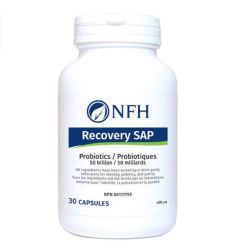For some people, especially those experiencing stress, it can be challenging to turn off a racing mind when we’re trying to fall asleep.
This feeling of restlessness often means that we’re stuck in ‘fight or flight’, which is governed by our sympathetic nervous system. To fall asleep, we need to flip the switch to get into ‘rest and digest’ state, which is governed by the parasympathetic nervous system.
GABA is what we call an inhibitory neurotransmitter, meaning it is a signal in our brain that acts like a ‘stop button’. When the GABA button is pressed, we are taken out of ‘fight or flight’ and put into ‘rest and digest’, so thatwe can relax and fall asleep1.
The relaxation benefit we get from GABA has been shown to decrease the amount of time it takes to fall asleep and increase the duration of sleep. Boosting GABA can also be helpful for people who experience anxiety or difficulty coping with stress during the day1.
Valerian is an herb that increases GABA to promote relaxation and sleep2. Valerian contains active constituents that bind to GABA receptors, triggeringthe brain’s ‘stop button’. This calms the body and mind to allow us to easily fall asleep.
Valerian also inhibits the enzymes that would normally break down GABA2. This means that naturally occurring GABA in the brain continues to press the ‘stop button’ for a longer period of time that it normally would, which promotes a longer sleep duration and improved sleep quality2.
Valerian allows us to achieve a restorative sleep without causing morning grogginess, making it an attractive alternative to sleep medications2.
Valerian Plant Juice is made from organic, fresh valerian herb and root that is pressed and sealed within 2-3 hours of harvesting the plant.Since it is made from the whole plant, it contains a full spectrum of active herb ingredients. It does not contain preservatives, added sugars, colours or flavours.
Valerian Plant Juice is an ideal way to deliver the calming benefits of valerian to promote a deep, restful sleep.
Dr. Hilary’s Tips for A Restful Sleep


- Set a bedtime: What is your ideal number of hours of sleep per night? What time do you need to wake up to start your day? Use these parameters to set a bedtime and stick to it whenever possible.
- Develop a bedtime routine: Turn off all electronics for 30 minutes before your bedtime. Instead, find a quiet bedtime routine: get ready for bed, spend time with family, meditate, journal, or read a book.
- Protect your sleep space: When you climb into bed, your body should know, “this is where we sleep”. If you watch tv, work, or even read in bed, the signal to sleep in that space is lost. Help re-connect your body with the idea that “this is where we sleep”.
- Sleep in a dark room: Even a small amount of light inhibits our natural melatonin production. I suggest using a sleep mask nightly to block out ambient light.
- Balance blood sugar: Eating sweet snacks or simple carbs before bed can spike our blood sugar, making it difficult to fall asleep, and causing us to wake up when our blood sugar crashes during the night. Limit snacking after dinner but if you do reach for a snack, focus on high protein and low sugar snacks such as nuts or hummus.
- Limit caffeine, nicotine and alcohol: Avoid caffeine after 3:00pm if you experience insomnia. Nicotine dependence causes waking about four hours after your last exposure, so smoking and vaping cessation helps us to sleep through the night. Alcohol may help us fall asleep but prevents us from achieving a deep sleep, so avoiding alcohol is important for waking up feeling well-rested.
- No napping: Napping is for babies, pregnancy, breastfeeding, and the elderly. Napping might help you feel energized to get through your day, but it undermines getting a deep, restful sleep at night.
- Additional screening: Insomnia and fatigue may be indications that another health concern should be addressed. Start with blood work to assess thyroid health and anemia, a sleep study to look for sleep apnea and other sleep disorders, and address underlying concerns like anxiety, depression, frequent urination, and chronic pain.






